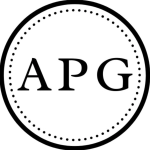National Trends and Regulatory Overview
Australia’s regulatory approach to short-term rentals (STRs), particularly Airbnb, varies by state, but common issues include concerns about housing affordability, rental availability, and community impact. Here’s an overview of the rules and implications across the country, based on research from CoreLogic, Urbis, and other sources.
National Trends and Regulatory Overview
Australia is one of the most heavily penetrated markets globally for STR platforms, with over 4% of total housing stock listed on platforms like Airbnb in major cities such as Sydney, Melbourne, and Brisbane. Despite this, regulation remains relatively light compared to international standards, prompting calls for stricter oversight. The STR sector contributes significantly to the tourism economy but has also been linked to rising rents and reduced housing availability, especially in key tourist areas(Urbis).
Regulatory Framework by State
- New South Wales (NSW):
- In NSW, properties in areas like Greater Sydney are subject to a 180-day limit per year for unhosted short-term rentals. There is also a requirement to register properties being used for STRs. Data indicates that a significant proportion of properties in places like Sydney and Byron Shire exceeded this limit, highlighting enforcement challenges.
- Victoria:
- In Victoria, especially in high-demand areas like Mornington Peninsula, local councils have introduced STR restrictions to manage the high percentage of homes (over 32% in some areas) being listed on Airbnb. Many listings are only booked for fewer than two months a year, raising concerns about “under-utilized” housing stock.
- Queensland:
- While Queensland has no state-wide STR limits, local councils such as the Gold Coast City Council have imposed planning regulations requiring hosts to apply for permits if their property exceeds a certain number of booked nights per year.
Impact on Housing and Rental Markets
According to research by Urbis, STRs do not have a uniform impact on housing affordability across Australia. The study noted that while short-term rentals are often blamed for reducing rental housing stock and driving up rents, these effects are highly localized. For example, in some tourist-heavy towns, STRs do displace long-term rentals, but in larger cities like Sydney and Melbourne, the impact is less clear.
Proposed Solutions and Recommendations
Several reports, including one from Resolution Research, propose more cohesive regulations, such as a national short-term rental registry, to better monitor and manage the sector. This could allow for more accurate data on STRs’ impact on housing and compliance enforcement. Higher council rates for STR properties and mandatory planning approvals for entire-home listings have also been suggested.
Tax Implications
- Income from STRs: Any income earned from platforms like Airbnb is taxable. Hosts must declare this income and can claim deductions for related expenses, such as mortgage interest, utilities, and maintenance.
- Capital Gains Tax (CGT): If a property has been used for STR purposes, the principal residence exemption for CGT may be partially reduced. The portion of the capital gain subject to tax is calculated based on the percentage of the property rented and the duration it was used for STR.
In conclusion, while STR platforms like Airbnb provide economic benefits, they also pose challenges to housing availability and affordability. Australian states are slowly responding with regulations, but stronger enforcement and consistent national frameworks may be necessary to address the evolving dynamics of this market.
With over 4% of housing stock in major cities like Sydney, Melbourne, and Brisbane listed on platforms like Airbnb, Australia ranks among the most heavily penetrated STR (Short-Term Rental) markets globally.
But while this fuels the tourism economy, the impact on housing availability and rent prices is sparking debate. Unlike other countries with tighter STR regulations, Australia has relatively light oversight.
Drop your thoughts below! 👇
#AustraliaHousing #Airbnb #HousingCrisis #TourismBoost #RealEstate #Trends #STR #regulation #SydneyProperty #MelbourneMarket #AffordableHousing #Rising #Rents #economy #investment #property
🏗️ Exciting Construction Update on Dawn’s Progress!
🏡 Quality Craftsmanship:
Dawn’s fit-out showcases excellence in every detail. Our video highlights the remarkable progress of this apartment, emphasising the commitment to quality craftsmanship and thoughtful design. From foundation to finishing touches, no compromises have been made in creating a home that exceeds expectations.
🌴 Coastal Living at Its Finest:
Situated in idyllic Mermaid Beach, Dawn offers a lifestyle many dream of. Residents will have the privilege of enjoying the beach, golden sands, refreshing surf, and invigorating coastal walks right at their doorstep. Embrace the serenity and beauty of coastal living.
🛍️ Conveniently Located:
Mermaid Beach is a vibrant community with a wealth of amenities and attractions. Dawn is thoughtfully positioned near an array of dining, shopping, and entertainment options. From trendy cafes to world-class restaurants, Pacific Fair Shopping Centre to The Star Gold Coast, everything you need is within reach.
🪴 Thoughtful Design:
Dawn has been carefully designed to create a space that harmonizes luxury and comfort. The video showcases the sleek and modern kitchen, spacious living areas, and seamless indoor-outdoor flow. A testament to mosaics commitment in providing an elegant and inviting living experience.
🏊 Resort-Style Amenities:
Dawn will offer residents access to resort-style amenities, including a sparkling swimming pool, fully equipped fitness center, and beautifully landscaped gardens. These facilities enhance your lifestyle, offering relaxation, rejuvenation, and community connection.
🔨 Progressing Well:
Dawn is progressing beautifully, thanks to our dedicated team. Every aspect of this property meets the highest standards. In the video, witness the care and expertise that goes into bringing this exceptional home to life.
📞 Stay Updated:
To stay informed about the latest updates on Dawn, reach out to us. We will provide any information you need and keep you in the loop as this remarkable property nears completion.
#australia #coastalliving #Dawn #quality #queensland #brisbane #mermaidbeach #dreamhome #new









Connect With Us